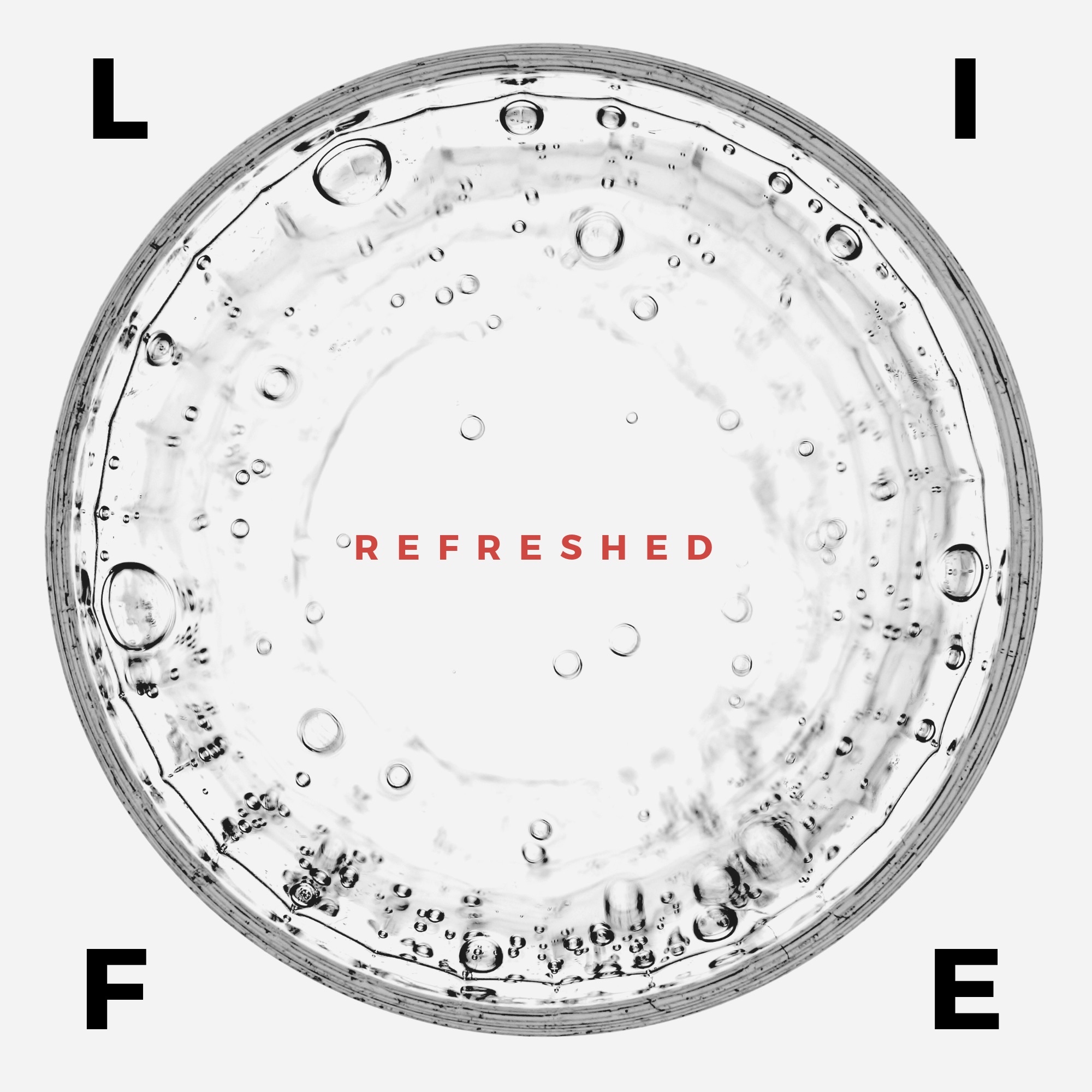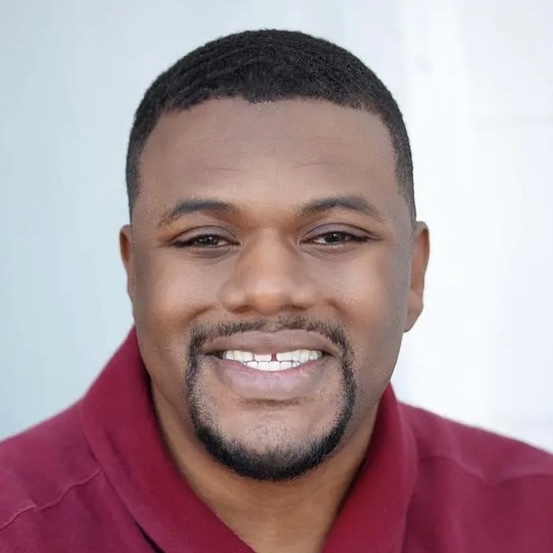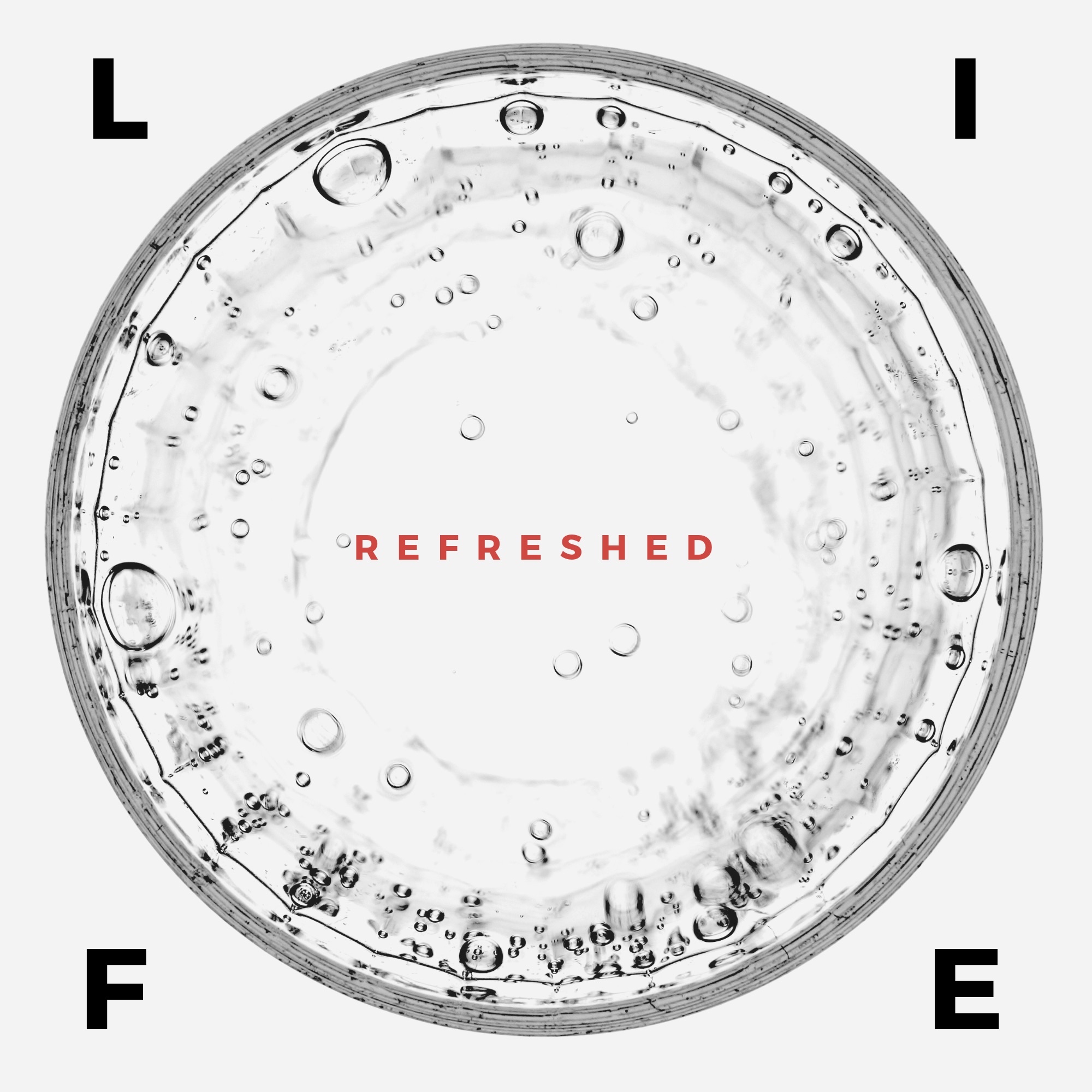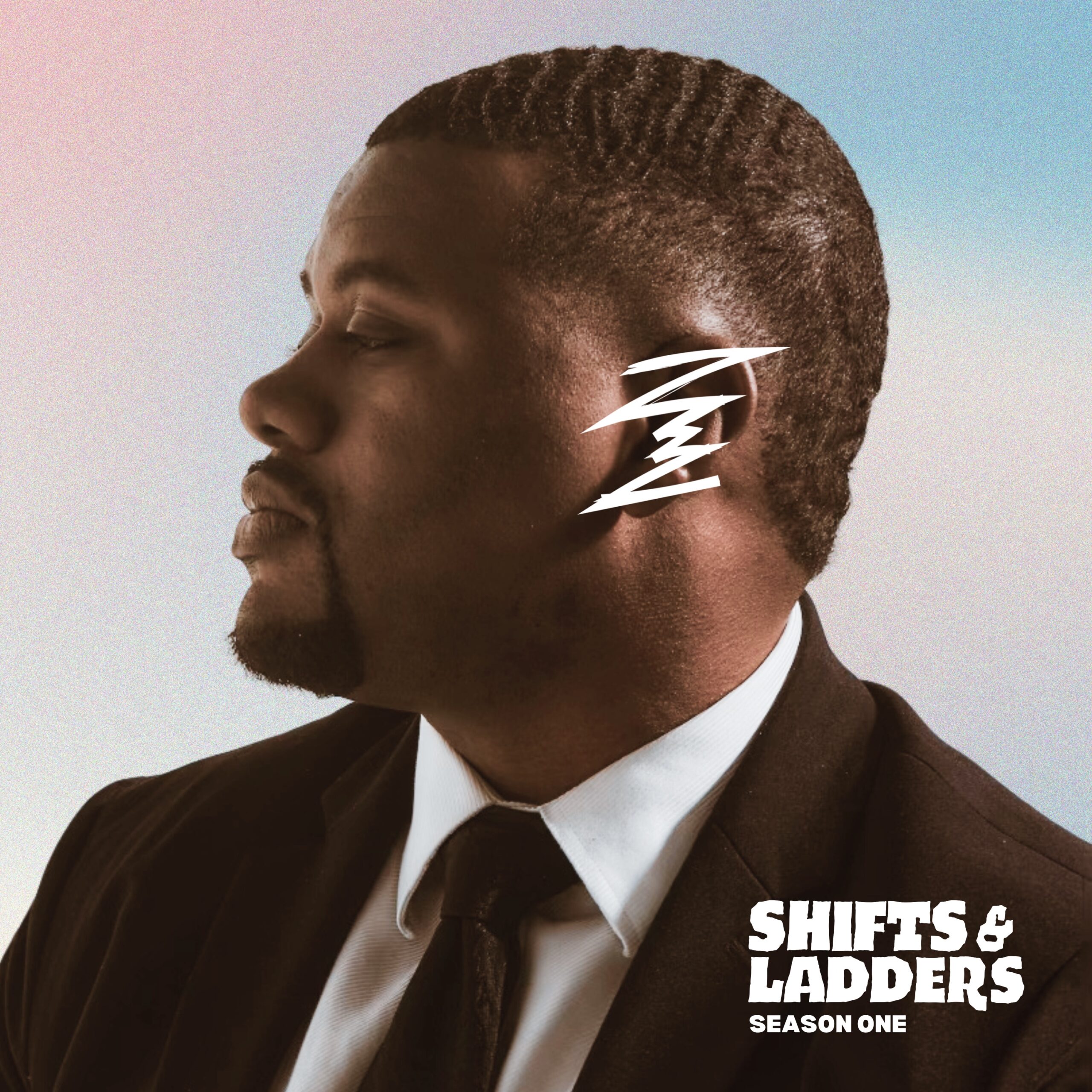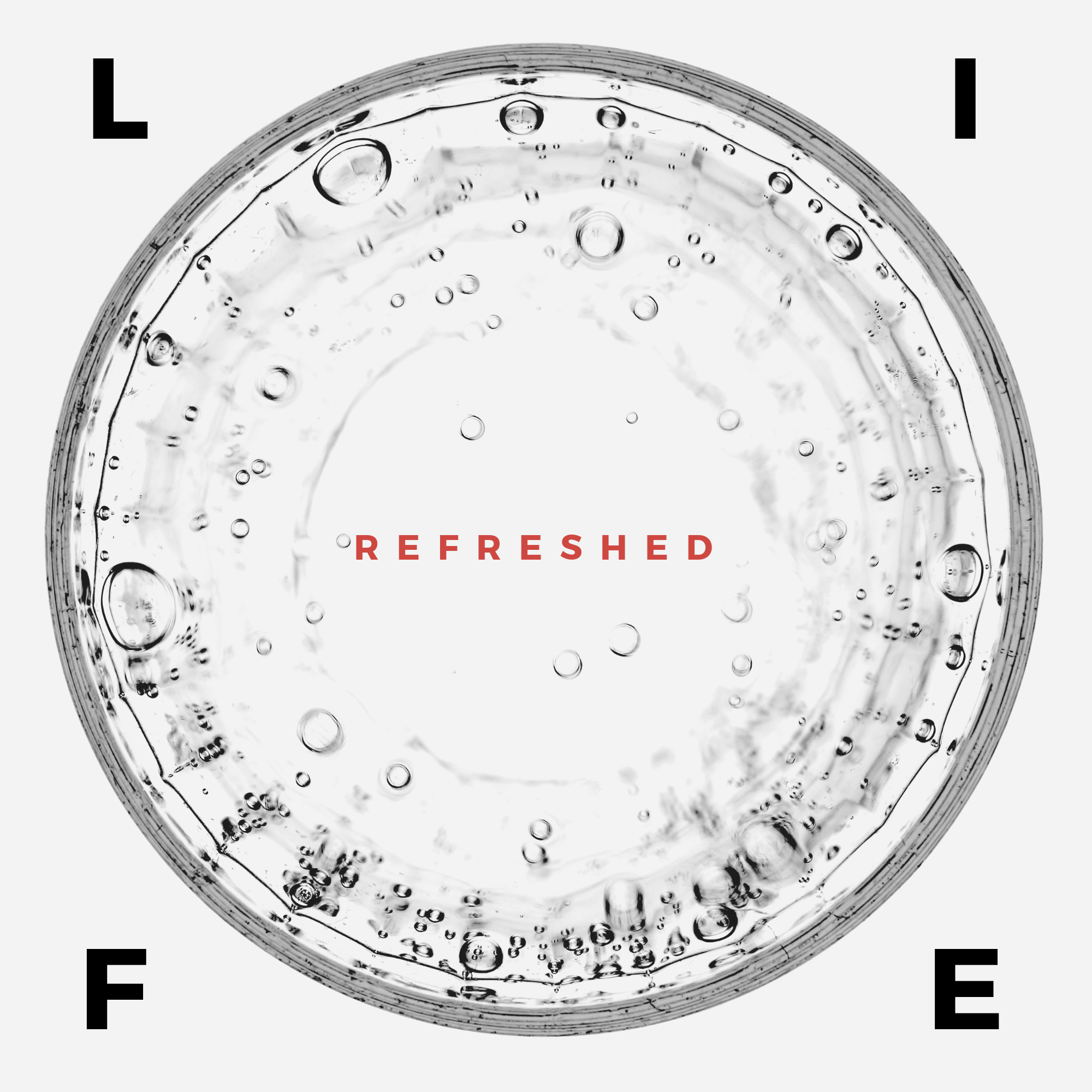Episode Transcript
Speaker 1 00:00:13 Welcome to the life refresh podcast. My name is Ryan Robinson. And if you were looking for a podcast that is designed to uplift, encourage, and revive your heart, mind, and spirit, you're in the right place. Welcome to the journey of becoming the version of you. God designed for the foundations of the earth. Now let's begin.
Speaker 1 00:00:49 Hello and welcome to the life refresh podcast. This is Ryan Robinson, again, excited and delighted to have you back on the podcast today. Um, I wanted to expound a bit on, uh, last episodes topic and, um, you know, it was around disciplined decisions. And one of the things about this discipline decisions is that, um, being disciplined gives you the opportunity to decide what you can and will not do. And those are some really difficult things for many of us to, to kind of work through because while we're trying to discipline ourselves, we're also trying to find ourselves. And, um, until you really determine what the anchored what's, your anchored identity is going to be. It makes it very difficult to create some discipline, but once you create some discipline and you can listen to the previous podcast to get that, uh, insight, uh, you have a role to play in deciding who and what you're going to do. And in some sense, decide who you're going to be and what character you're going to be in the story. I read this book recently called hero on a mission by Donald Miller. And I will have the link to the book in the show notes. And, uh, Donald Miller really speaks upon
Speaker 1 00:02:32 How individuals will take specific roles in story, uh, whether you're watching a movie, whether you're reading a book, there are typically four archetypes of archetypes of characters in a story. One is the victim. Two is the villain. Three is the hero. And four is the guide. And the word of God says in Romans 11, verse 29, it means for the gifts and calling of God are without repentance, which means that the blessings and promises of God are something that once God gives them, he never pulls them back away from you. So everything that you need to be successful in what God called you to do you have what you need. Uh, I, I mentioned in the intro of the podcast and the podcast is designed to help those realize what God has placed in them from the foundations of the earth, which means you've already been equipped to do the things that you are called to do the desires that are in your heart, whether it be to play music, whether it be to strategize, whether it be to communicate.
Speaker 1 00:03:58 Those are things that God has placed in each and every one of us. And it is up to us to decide whether or not we want to realize or put in the work to cultivate excavate and develop those gifts, uh, to the glory of God. Now there are attitudes which Donald Miller calls, characters that manifest themselves in how we do what we do. And I was so enamored by this particular, um, uh, teaching that it arrested me in thinking which character am I. There are books that I've read, um, when I was in maybe the third or fourth grade, and it was goosebumps by RL Stein. And some of those books were choose your character stories. So as you read the stories and maybe certain excerpts of them, you got the opportunity as a character in the book to choose the fate of your character. Some of those characters either met their demise early.
Speaker 1 00:05:21 Some of those characters became the hero. Some of those characters became, uh, influenced by the adversary and essentially became the antithesis or the, uh, of, of the positive character in the story. Or they just became someone who had a quick end to their story or helped someone through whatever the case is. The most common thing in this was that these authors put you in the story. And if you chose to go to page 72, if you wanted to save someone or go to page 102, to sit back and see what would happen, the story would change based upon how you perceived the situation. And some stories ended early. There was really no way to understand what was the right path. My character was supposed to take. You have no idea because these books put you all across different pages to conclude your fate as the character.
Speaker 1 00:06:44 So, uh, Donald Miller, a New York times bestselling author himself said that there is typically four roles that we play in our lives. Now, again, these are synonymous. Uh, they can change depending on circumstances, uh, areas of work that you're in, whether it be relationship challenges, whether it be emotional, professional, whatever the case is, these, you will be different characters in different parts of your life. And living a life is really like living a good story. And sometimes we don't realize the hours of daydreaming and planning and, and false starts to happen. During that process, the reader will never experience what it's like to build a story. When they're reading a book, they just get this read. The final product stories can be fun to write. And in some cases they're fun to live, but good ones really take work. Now, here it is. Now, if you're tired of life, what we're really tired of is the story we are living inside of our it's a great thing about being tired of our story is that stories can be edited.
Speaker 1 00:08:10 Stories can be fixed, or it can go from dull to exciting from rambling to focused from drudgery to exhilarating in just a moment. So all we need to do is fix our stories with principles that make a story meaningful. Now, once we apply these principles, depending on your character, our lives will indeed change. Our personal experiences will shift, and we will feel a level of gratitude in the beauty of the journey, rather than the resentment of a meaningless life that does not have any direction to it. Uh, the author really makes a couple of things, and I really believe that there's some power to this particular statement that those who have experienced midlife crisis in their lives are those who have ran out of story for their lives. I'm going to say that again, those who have run into midlife crisis or crises, if that's the plural version of it crisis, um, are those who have run out of story for their lives. For the time that we grow and were developed, we go from, we go to school, we go to high school, we go to college, we get a good job. We get married, we have 2.5 kids. We buy a house. And then once you've done that, what else is left in your life to do?
Speaker 1 00:09:51 And most people run into those problems. Why? Because they ran out of vision and story for their lives. They haven't tapped into what they feel they've been called to do, but they have really examined and exemplified and developed what people think they should be having in their life. And that's a dangerous place to be because in order to really develop who you are and become the person in your story, um, it, it, it is, it is a, it takes the power away from your life, uh, to really exemplify and live what you've been called to do. Um, the most powerful thing that the Bible says that God speaks is a, he's really given us all power and authority to trample over serpents, to call things out that be not as though they were to really speak the word of God over our lives and activate.
Speaker 1 00:10:57 He's empowered us to do the things that we need to do based on the authority given to us by the blood of Jesus Christ actually realize. And in some cases manifest what we have faith for the Bible says, if you have faith, the size of a grain of a mustard seed, which is super small, see what God would do with that level of faith. So at that point, you have to decide, who are you going to be? What characteristics or characters you're going to play in your own life. So let me start with number one. And I started with the victim. The victim is one who feels that they have no way out. Um, so if you think about it, a person who surrenders their life to fate is the essence of a victim. Think of any superhero movie by surrendering their story to fate, they allow fate to decide whether they succeed or not, whether they live or die. In a real example, whether they succeed in a career where they experience intimacy in a relationship where they cultivate a sense of gratitude or set an example for their children, fate then does a terrific job in managing the scenery, but little to push the plot of a hero forward, that job is the heroes to do. And the victim did not do that. Victims believe that they're helpless. And so flail until they are rescued.
Speaker 1 00:12:59 Victimhood is a temporary state. So once we've been rescued, a better story can be built from that energetic, heroic energy that helps move the story forward. But most of us who are used to be in victims, um, go back to being a victim because it's the most comfortable characteristic that we know. There are times when we've, um, accepted that this is just the way life is going to be. We will blame everyone for how we feel. We will destroy relationships because someone made me feel some way. What last time I checked, no one has the power to make you feel some kind of way, unless you have given them the power to do so. Therefore you have given your heroic energy away and made yourself the victim. Now, this is something you have to figure out for yourself. This is not something that I'm, you know, I'm not telling you character, but just listen.
Speaker 1 00:14:09 You might find yourself in some of these cases, making what we call excuses as to why you decide to not do something and just wait for someone to save you a number to the Villa villain, excuse me, the villain, the villain is the one who makes others small. The villain takes that hurt or the energy that could transform them and transformed them into a hero and makes a bad story out of it. Now, the hero and the villain typically have a very similar space. Um, but in some cases, the villain, actually, in most cases, the villain has some kind of torment in its past. So if we think about the dark night, uh, Batman, Batman fan, so I'm gonna use this one. Um, the joker in a Heath Ledger's character in the dark night always was referencing something in his past, something that, uh, distracted him.
Speaker 1 00:15:24 So, uh, you know, he mentioned something about his, his father and how he made him feel like he needed to smile when he was, uh, getting whooped or, or whatever the case was. So he recalled some kind of trauma that made him more villainous than Batman. The end in most cases, most villains are depicted by some kind of physical deficit. Uh, think of the lion king and scar scar had a scar over his eye. Uh, the joker had cuts on his, in his lips air, in his, uh, on his cheeks. Um, just think of any character, any villain, there is some kind of physical damage that represents something that made them feel small, some kind of torment. So the thing is there is some kind of pain that the villain is carrying, but it has yet to decide to deal with it or heal from it.
Speaker 1 00:16:37 So what separates a villain from a hero is that the hero learns from the pain and tries to help others avoid the same pain, but the villain decides to seek vengeance upon the world that hurt them. So the difference between a villain villain and a hero is the way they react to the pain that they experienced is amazing that there might be people that you run. It might be you listening that has been through something similar to a friend or to a close loved one or something where someone you identify with on the television screen, one responded a certain way to it. And another decided to respond to it in a positive way. They might've grown up in the same place, or you might've experienced very similar things. But what we have chosen to do with the pain that we've experienced, determines whether we are a villain or a hero, if you've to heal, you've become the hero.
Speaker 1 00:17:55 And that's what we really got to be honest with. Are we really dealing with the pain that we've experienced or are we using it as a badge of honor to give us some sense of security, some sense of pride in which we decide not to heal, but use it as a tool to give as an excuse of why we mistreat the ones that we care about that we mistreat the people that we love, because you know what this was done to me. And I just have chosen not to deal or heal from it. Perhaps you might become the villain in your life, or perhaps you have become the hero very fine line between a hero and the villain with every hero, the power of the siding. What are you going to do with the pain you experience is what makes a hero? God has given us the ability, the power to choose with freewill.
Speaker 1 00:19:08 Are you going to decide to be a victim or you can decide to be a villain, or are you going to be a hero, which is the one who's willing to face their challenges and transform. Now the hero is the only character or the archetype of story that has the ability to transform by the conduit of pain. The hero wants something in their life and is willing to accept the challenge in order to transform into the person, capable of getting what they want. They are subconsciously willing to arise to the occasion because they want it so bad when they are rejected. How do they treat people when they're rejected? When they feel lost? Are they able to find light and direction in darkness? Do they try? Do they move forward against all odds? And do they get up again? When they've been knocked down, if a hero responds with a purposeful action and here it is, here's the key and a sense of hope.
Speaker 1 00:20:30 Their story can move forward and become interesting to watch. But if they respond in a sense of helplessness or they lash out at others, their story will break down. I think of Tony stark in iron, he was not the most favorite person in it. At least in the first movie. Um, when he started, he was actually a villain. He was providing all of the arms dealers, their weaponry, and then he had a transformational moment in which he decided I am not going to aid in this because what aided in my capture aided in someone's death. And he actually lived and really witnessed this. So as we've gone through all these movies that Marvel and Disney have cultivated and built up over almost a decade plus of filmmaking, we come to a point where the hero home, Tony stark at this point, um, decided that it was worth the sacrifice to be a hero. And he was willing to go into something. It really, as a last ditch effort to save everyone. Now, the thing is the hero has to be willing to sacrifice a part of themselves or a piece of themselves for the greater good.
Speaker 1 00:22:08 Are we willing to be heroes in our own lives? Whether it be to our families, to our friends, to a cause that's bigger than ourselves. Are we willing to face the challenge and transform? Now here's the other one. This is the last part. The guide is the one who helps the hero. Heroes really can't make it on their own because they don't know how they're looking for someone to help them. If they knew how they would have worked out all the kinks on their own. And there really wouldn't be no story. They would have known what to do. They would have, you know, did a plus B equals C and boom. They would have done it. But what we need to remember is that heroes are flawed in our knee are in need of transformation.
Speaker 1 00:23:03 And they're actually the weakest, if not the second week is character in a story. First, only to the victim who was in worse shape. So in order to help the hero out, the storyteller sends a guide in star wars, Yoda, help Luke, or how to be a Jedi in the hunger games. Haymitch helps Katniss when the hunger games. So when you watch a story, the story itself is not about the guy, but it's about the hero, but the guide is the strongest, most capable character in the story because they have also been the most caring and compassionate because they lived the process that the hero is going through. They're the most experienced. They may root for the hero and hate the villain, but they generally get the utmost respect by the audience. So when you think about guides in the story, Mr. Miyagi, Inc in karate kid, Rafiki in the lion king, they are guiding the person or the family into a new and butter understanding of life in itself, but also an understanding of the hero itself.
Speaker 1 00:24:27 They see into the hero until the hero sees himself again, therefore becoming a guide is the most meaningful transformation that can happen in any human life. So once we've become heroes, it is our responsibility to pull someone through, to help them through. It would be selfish of us to hold on and say, this information is for ourselves to not share with someone, to make it easier for someone coming behind us. Jesus says to Peter says, once you have strengthened yourself, make sure you go back and strengthen your brothers. Meaning once you figured out how to get through, go back and help somebody else through. We have the ability to not just be the hero in our lives, but we also get the ability to aid another hero by being their guide.
Speaker 1 00:25:27 But isn't it amazing that in our lives, we become all four of these characters. At some point, whether we are a guide in business, a hero in relationship, a villain and friendship, a victim in circumstance, we've all have been one of these four characters in our lives. God has given us the ability, the ability to choose which character we're going to be in this life. Now, my question to you, my listeners is which one are you going to be? We need a lot more guides in this life, but we need more heroes first because heroes eventually will turn into guides. And I hope that this podcast at least helps you to choose which character you're going to be. Eat your own story.
Speaker 1 00:26:30 Thank you for tuning into the life room, refresh podcasts. There are three things I'll need you to do before you get one subscribe to this podcast, whether it be through apple podcasts, Google podcasts, where ever you listen to podcasts, make sure that you subscribe to get the latest episode of your feet to rank the podcast. If you liked what you heard today, make sure you give it a great rating on those platforms. It'll help get us the exposure we need to make our message much broader and reach a different audience. And three, make sure you share this episode. I guarantee if you found value in it, someone you're connected to will find value in it with that said, take care and tune in to the next episode of life.
